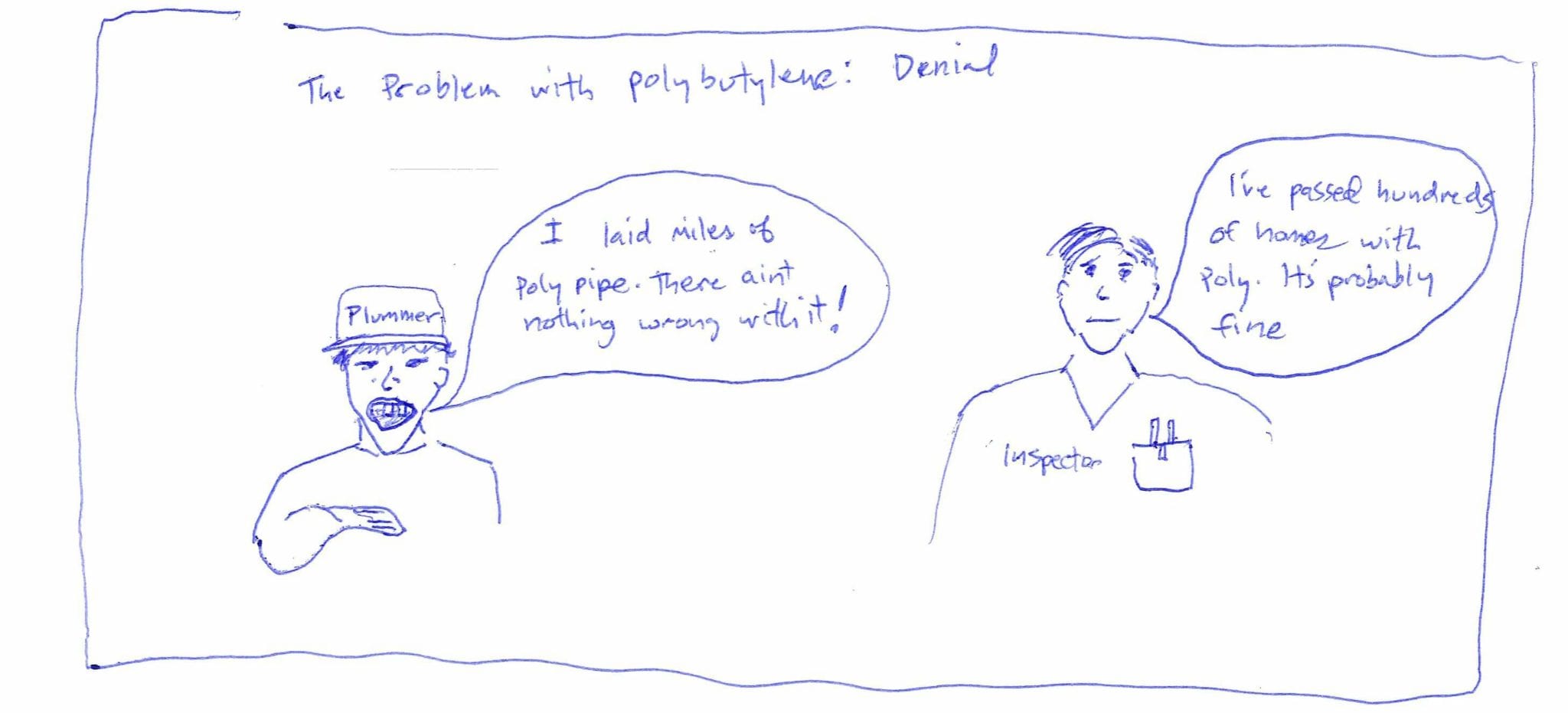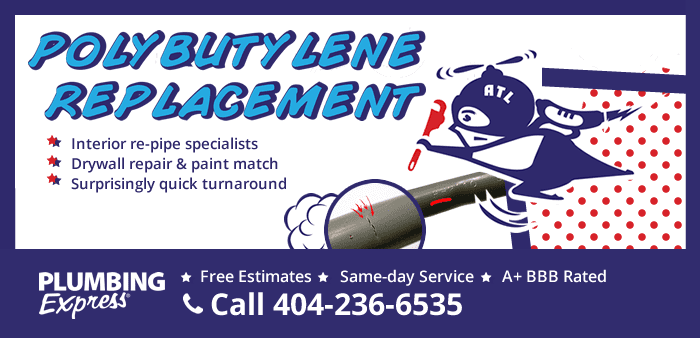Metro Atlanta, GA Homeowners and buyers need to know:
There is irrefutable scientific proof behind polybutylene pipe failure:

Many home inspectors and plumbers do not fully understand and appreciate the severe problem with polybutylene pipe installed in homes. Polybutylene piping was used extensively in construction between 1978 and 1995 because it is much less expensive to manufacture and install than copper piping. It was considered a “miracle” product. Polybutylene pipes generally work fine for years, then fails suddenly. The first leak is often closely followed by multiple subsequent leaks. This is a problem worth taking care of as soon as you can, because you can count on that unexpected failure happening at the very worst time—when you’re on vacation and no one’s home to see the damage—when you’re unusually busy or stressed—when you’re in the middle of selling your home.
Some inspectors are reluctant to even admit the problem, in spite of overwhelming evidence, because they have let polybutylene slide as a minor issue on so many inspections over the years. Much of the information floating around in the community of home inspectors is based on rumors and anecdotal evidence. This bad information adversely affects new homeowners every day. People save their money to purchase a home, pay closing costs, move, maybe buy new furniture or carpeting, and then a pipe bursts. Damage to property, money to the plumbers: Is there a worse time for unexpected costs than when you’ve just jumped through all the hoops of a home purchase? Many insurance providers don’t even offer coverage to homes known to have polybutylene plumbing.
One of the first mistaken beliefs about polybutylene is that the plastic molded into the pipe (made from the polymer called polybutylene) is not the problem, and that the reason the pipe fails is due to improperly made pipe fittings or due to improperly crimped connector rings.
Almost everyone will agree that polybutylene pipe typically breaks in the water service line, which is in-ground before it breaks in the walls of a home. A water service line in the yard typically has zero joints between the transition point to the home and the connection to the county water meter. If the problem is mainly in the fittings how is it possible that polybutylene breaks in the yard where there are no fittings?
The problem with polybutylene has to do with chemistry:

When the polybutylene starts to fail it often happens in multiple areas over a short period of time. The pipe becoming brittle and breaking means that a chemical reaction has weakened the pipe to a failure point. The byproducts of chlorine used in municipal drinking water has degraded the layer of plastic on the inside. This reaction occurs where the pipe is in contact with the chlorine and causes a decrease in the molecular mass of that very inner layer of the PB. This causes the inner layer to “shrink” and puts mechanical stress on the outer layer of the pipe. This stress becomes more significant over time and microscopic cracks develop. The cracks expand and network together ultimately resulting a what material scientists would call a “catastrophic failure.”
It fails in the yard first because the chlorine content and water pressure are slightly higher there. After it fails in the yard it will fail in the walls of a home.
You can download one of the chemical engineering papers from University of Illinois Chicago on the mechanics of polybutylene degradation here. Another available paper is Failure mechanisms and lifetime prediction methodology for polybutylene pipe in water distribution system. I don’t believe we’re able to post the papers on our site due to copyright issues but email us and I’m sure we can work something out. If you are a homeowner and aren’t into chemistry these papers will not tickle your fancy but they are worth reading for members of the home inspector community.
Need more reasons to replace polybutylene pipe? Here are some reasons to do the pipe replacement before you sell.
Read about one clients bad experience with polybutylene leaks.

Ty has worked in the home services and plumbing business for 20 years and is a Georgia State Licensed Master Plumber. As the owner of Plumbing Express since 2012, Ty brings two decades of industry expertise, gained through various roles and responsibilities across multiple companies. He thrives on the challenges of building and maintaining a healthy, customer-focused company. Ty stays hands-on with daily operations, promoting a principles-based culture that creates win-win outcomes for customers, vendors, and team members alike.